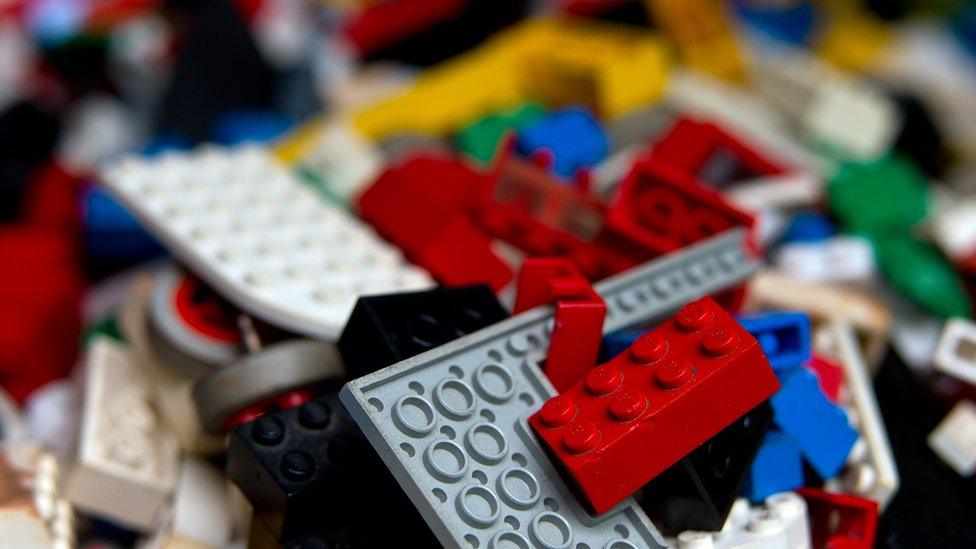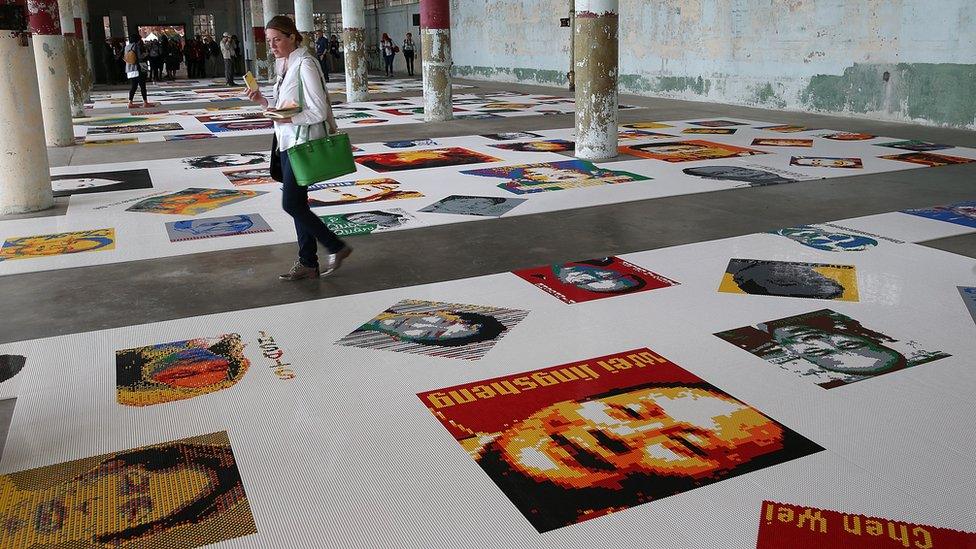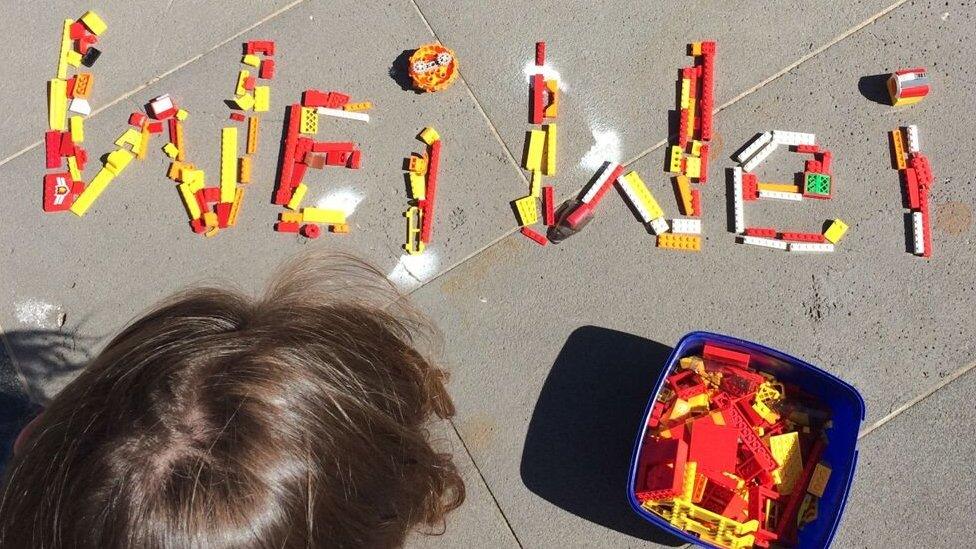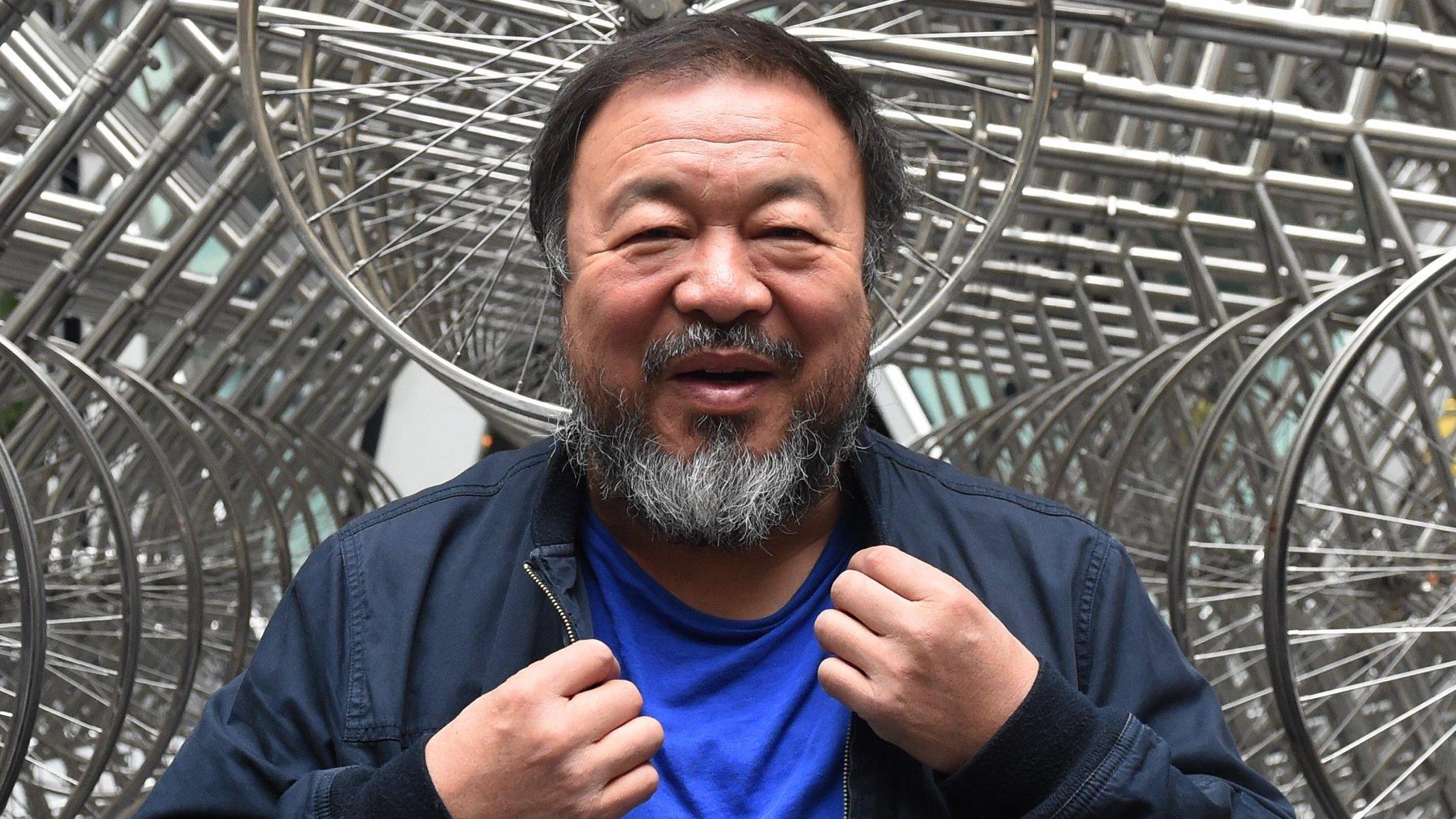Lego changes bulk buy policy after Ai Weiwei backlash
- Published
Chinese artist Ai Weiwei described the U-turn as "a victory for freedom of speech"
Lego has said it is reversing its policy on bulk purchases and will no longer ask customers what they want to use the bricks for.
The U-turn follows a recent controversy involving Chinese artist Ai Weiwei.
In October last year, Ai accused Lego of censorship when it refused to sell its bricks directly to him.
The company said its policy was to reject requests if it believed the bricks would be used to make a political statement.
Ai is known for his criticism of the Chinese government as well as for being one of the world's leading contemporary artists.
He wanted the bricks for an artwork on political dissidents. The artist ended up using "fake" bricks donated to him by the public for an exhibition in Melbourne, Australia.
Ai appeared to react to Lego's decision on Wednesday by posting a picture on Instagram of a young boy sticking bricks onto his face, accompanied by a grinning emoji caption.

Lego says it will ask bulk buy customers to make clear that the group does not support or endorse their projects, if exhibited in public

How Lego got political in China - Celia Hatton, BBC News
When Lego first refused to sell a bulk order of plastic bricks to Ai Weiwei in September, he's thought to have kept the news to himself. But a few weeks later, the announcement that a new Legoland theme park would open in Shanghai led the artist to reveal Lego's decision to stay away from projects that had a "political agenda".
It was a surprising decision by Lego. After all, Ai Weiwei had used Lego before. He created a series of portraits of political dissidents that appeared at an exhibition in Alcatraz prison in 2014.
Back in October, the artist tied Lego's financial interests in China with its decision to refuse his order. His accusation has some merit: KIRKBI, the private Danish company that owns the Lego brand also owns a significant amount of shares in Merlin Entertainment, the British company that operates Legolands around the world.
China is Lego's fastest growing market and the company wouldn't want to irritate Beijing. However, as Lego might attest, few would want to battle the feisty Ai Weiwei.

In a statement posted on its website on Tuesday,, external Lego said it used to ask customers ordering bulk purchases for the "thematic purpose" of their project, as it did not want to "actively support or endorse specific agendas".
"However, those guidelines could result in misunderstandings or be perceived as inconsistent, and the Lego Group has therefore adjusted the guidelines for sales of Lego bricks in very large quantities," it said.
As of 1 January the company will instead ask that customers make clear the group does not support or endorse their projects, if exhibited in public.
Lego's earlier decision to refuse Ai's request angered the artist, who accused the company of censorship and discrimination, and of attempting to define political art.
The artist told the BBC he welcomed Lego's change of heart.
"I think Lego made a good move, I think this would be a small victory for freedom of speech."

The artist created Lego portraits of notable dissidents in 2014 at San Francisco's infamous Alcatraz prison
The artist also linked Lego's stance with business interests in China.
The controversy sparked a public backlash resulting in supporters around the world offering to donate toy bricks.
Ai set up "Lego collection points" in different cities, and ended up making a new series of artworks based on the incident as a commentary on freedom of speech and political art.
Correction: This article was changed to make it clear that Ai Weiwei's Melbourne exhibition used non-Lego bricks.
- Published29 October 2015

- Published26 October 2015

- Published25 October 2015
